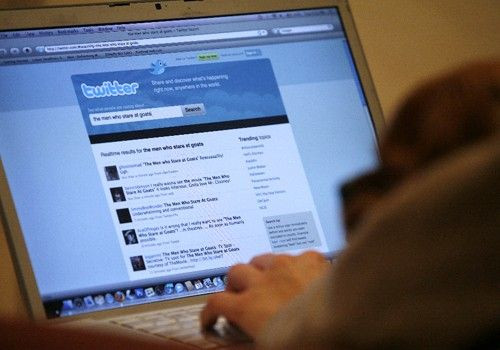Twitter takes WikiLeaks subpoena public; Google, Facebook under scrutiny

Twitter's fight to make public the fact that it has been subpoenaed by the U.S. government seeking details about all WikiLeaks-related accounts has now put the light on other internet majors such as Google Inc and Facebook.
The microblogging site, which recently faced questions over keeping WikiLeaks off the Trending Topics list, has now landed the likes of Google and Facebook under the public scrutiny after it legally fought and won on Friday the right to inform the people whose records the government was seeking.
The Court Order
The government had asked Twitter to hand over private messages or communications that took place between WikiLeaks founder Julian Assange, other WikiLeaks staffers, associates, volunteers, WikiLeaks, Pfc., as well as Bradley Manning, the man suspected to be the source of the cables leak.
The court order was sent to Twitter by the Department of Justice on Decemer 14, 2010. The United States district court for the Eastern District of Virginia, which stated that the information that Twitter had was revelant to the WikiLeaks investigation, ordered hand over of data dating back to November 2009 to the present.
The information sought included:
- Subscriber names, user names, screen names, or other identities
- Mailing addresses, residential addresses, business addresses, e-mail adresses and other contact information
- Connection records, or records of session times and durations
- Lenght of service (including start date) and types of services utilized
- Telephone or instrument number or other subscriber number or identity, including any temporarily assigned network address
- Means and source of payment of such service (including any credit card or bank account number) and billing records
- Records of user activity for any connections made to or from the account
- Non-content information such as IP addresses and source or destination email addresses
- Correspondence and notes of records related to the accounts
The subpoena obtained by the U.S. Department of Justice was spilled out to the public on Friday after Twitter won a legal battle requesting a right to inform the individuals involved.
WikiLeaks slams double standards
Slamming the government for having double standards, WikiLeaks tweeted on January 8, If the Iranian govt asked for DMs of Iranian activists, State Dept would be all over this violation of Internet freedom #doublestandards.
There are many WikiLeaks supporters listed in the US Twitter subpoena.
As per media reports, all 650,000 Twitter followers of WikiLeaks are now under the American government microscope.
Too late to unfollow; trick used is to demand the lists, dates and IPs of all who received our twitter messages, whistle-blower webiste remarked.
Twitter's compliance to government request
Even though Twitter does provide a certain extent of privacy to its users, the site just like any other internet company is required to comply to request from governments and law enforcement into criminal investigations.
On Privacy, Twitter says, We do not disclose your private information except in the limited circumstances. One of the listed circumstances include Law and Harm, elaborating on which the company says, We may disclose your information if we believe that it is reasonably necessary to comply with a law, regulation or legal request; to protect the safety of any person; to address fraud, security or technical issues; or to protect Twitter's rights or property.
Twitter's 'spy guide', which basically contains details on its response to requests from authorities, says In accordance with our Privacy Policy and Terms of Service, non-public information about Twitter users is not released unless we have received a subpoena, court order or other legal process document.
Although on these terms Twitter is expected to release the information required by the government, its move to go public has elicited interesting responses.
Suspicious Silence of Google and Facebook
Questioning the silence of other internet giants, the WikiLeaks tweeted, Note that we can assume Google & Facebook also have secret US government subpeonas. They make no comment. Did they fold?
Many media outlets have also raised concern over the matter.
Google and other web and social media services all have the same kinds of spy guide documents governing compliance; we'd be shocked if Twitter was the only company that got a WikiLeaks-related court order to surrender information, a report on the popular tech blog, Mashable read.
Reading the development at another level, a report on The Telegraph observed that the request for information from the government is noteworthy as it put the spotlight on the secret subpoenas, which have come under attack as misuse of secrecy provisions and of exemplary privacy ethics.
Law and Privacy
Amid the increasing number of requests from governments across the world, Google last year set up an online tool, called The Transparency Report, showing the frequency of these requests. In 2009, Facebook had revealed to the media that it received subpoenas and other orders at a rate of 10 to 20 a day, while in 2007, Verizon had revealed that it received 90,000 such requests each year.
The law currently governing communication privacy was enacted in 1986. This was before the advent of the cellphones and the internet, and before internet became the space for people to store e-mails, photographs, contacts and other private documents.
Although internet companies have in the past validated the government requests as legitamate to investigations, the 1986 Electronic Communications Privacy Act, some legal observers believe, needs to be appropriated as per the requirements of the day - as the world is torn between the need for individual privacy and the constant fear of terrorism and crime.
© Copyright IBTimes 2025. All rights reserved.





















